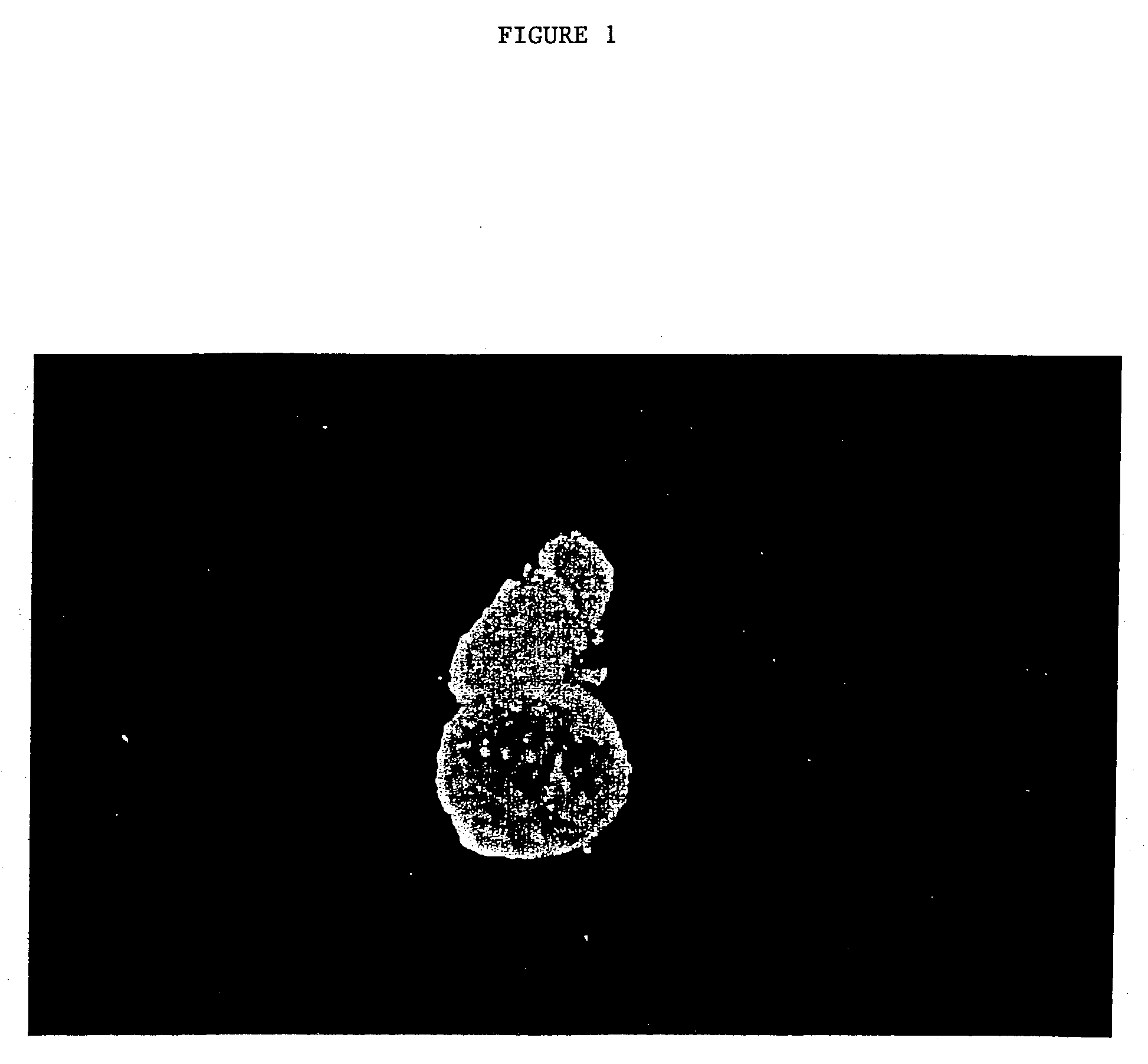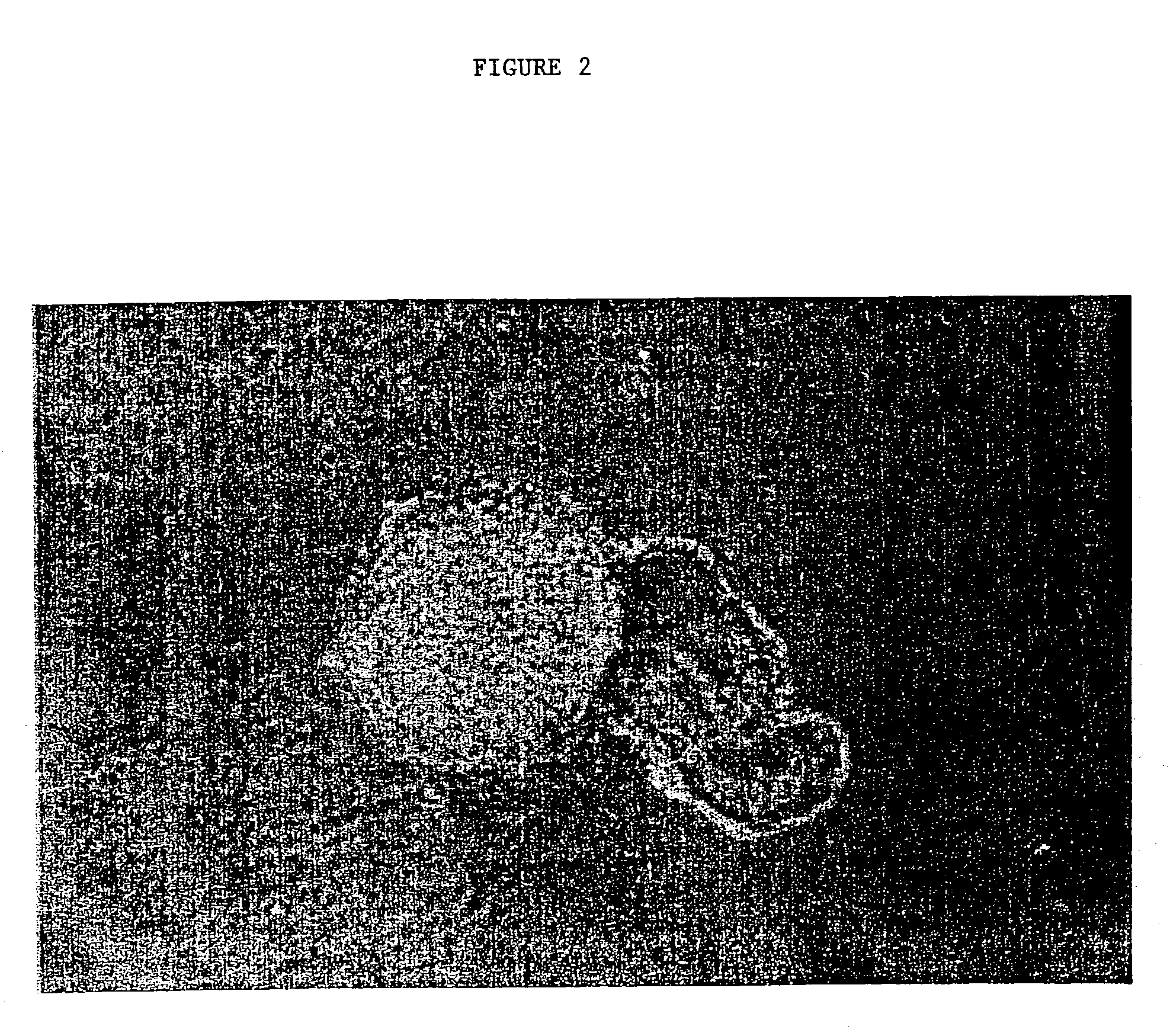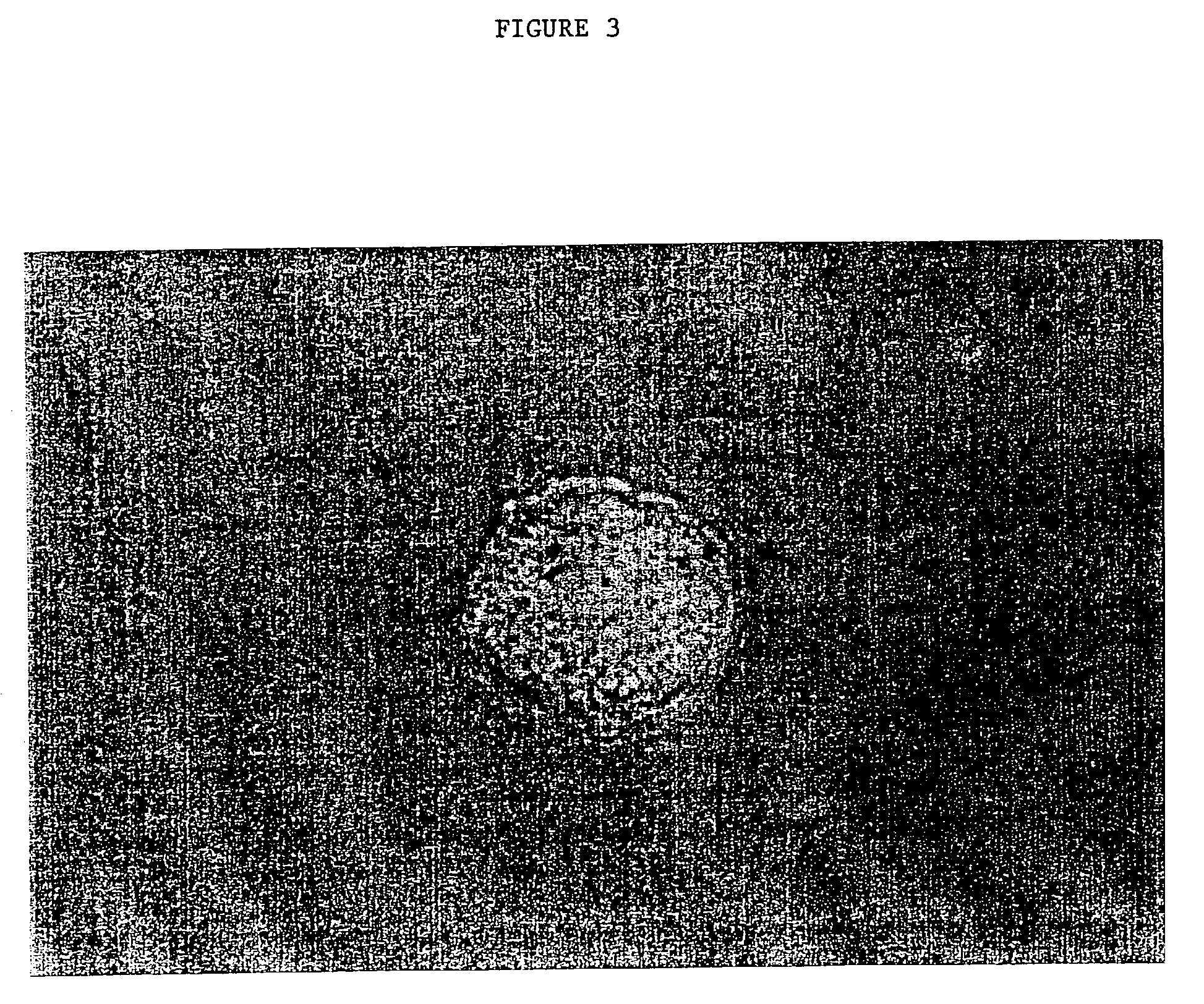Gynogenetic or androgenetic production of pluripotent cells and cell lines, and use thereof to produce differentiated cells and tissues
a technology of pluripotent cells and cell lines, applied in the direction of genetically modified cells, instruments, skeletal/connective tissue cells, etc., can solve the problems of never being reported in peer-reviewed journals, failure to contribute any genetic material to the resulting embryo, etc., to prevent or reduce eliminate or reduce the effect of the need for anti-rejection drugs
- Summary
- Abstract
- Description
- Claims
- Application Information
AI Technical Summary
Benefits of technology
Problems solved by technology
Method used
Image
Examples
example 2
Production of Parthogenic Primate Primordial Stem Cells (PPSCs)
[0184] Materials and Methods
[0185] 1--Cynomolgous Monkey (Macaca fascicularis) were superovulated using a single injection of 1000 IU of pregnant mare's serum gonadtrophin (PMSG) and 500 IU of human chorionic gonadoprophin (hCG) four days later.
[0186] 2--Ovaries were retrieved by laparotomy and oocytes dissected from the follicles and placed in maturation media 36 to 48 hrs after (hCG). Maturation media consisted of medium-199 (Gibco BRL) with Earle's balanced salt solution supplemented with 20% fetal bovine serum, 10 IU / ml of PMSG, 10 IU / ml of hCG, 0.05 mg / ml of penicillin G and 0.075 mg / ml of steptomycin sulfate (Hong, 1999).
[0187] 3--Oocyte activation. After 40 hrs in maturation, metaphase II eggs were placed in 10 micromoles of Ionomycin followed incubation in 200 mM 6-DMAP (dimethylaminopurine) for 3 to 4 hrs.
[0188] 4--Embryo culture. Commercially available embryo culture media `Cooks` was used (modified SOF). Embry...
PUM
| Property | Measurement | Unit |
|---|---|---|
| volume | aaaaa | aaaaa |
| volume | aaaaa | aaaaa |
| volume | aaaaa | aaaaa |
Abstract
Description
Claims
Application Information
 Login to View More
Login to View More - R&D
- Intellectual Property
- Life Sciences
- Materials
- Tech Scout
- Unparalleled Data Quality
- Higher Quality Content
- 60% Fewer Hallucinations
Browse by: Latest US Patents, China's latest patents, Technical Efficacy Thesaurus, Application Domain, Technology Topic, Popular Technical Reports.
© 2025 PatSnap. All rights reserved.Legal|Privacy policy|Modern Slavery Act Transparency Statement|Sitemap|About US| Contact US: help@patsnap.com



